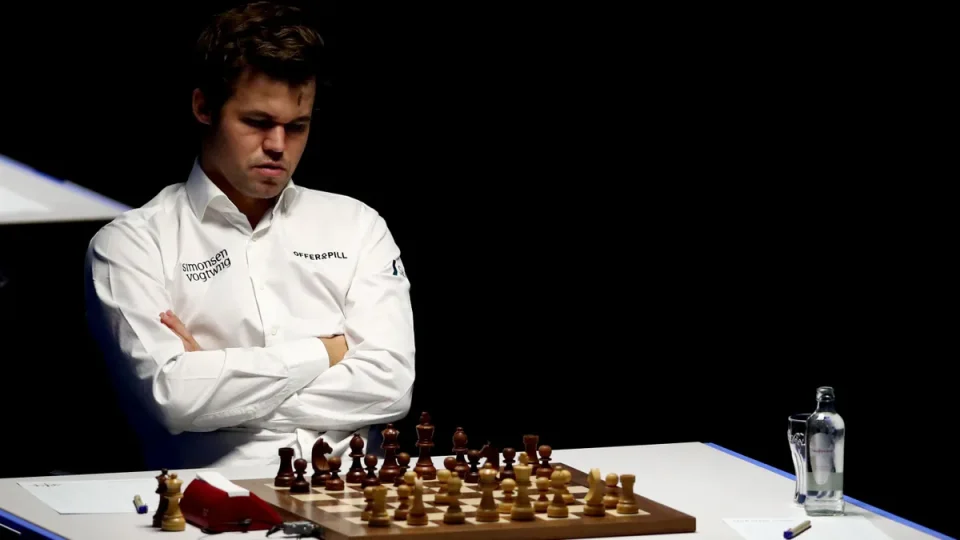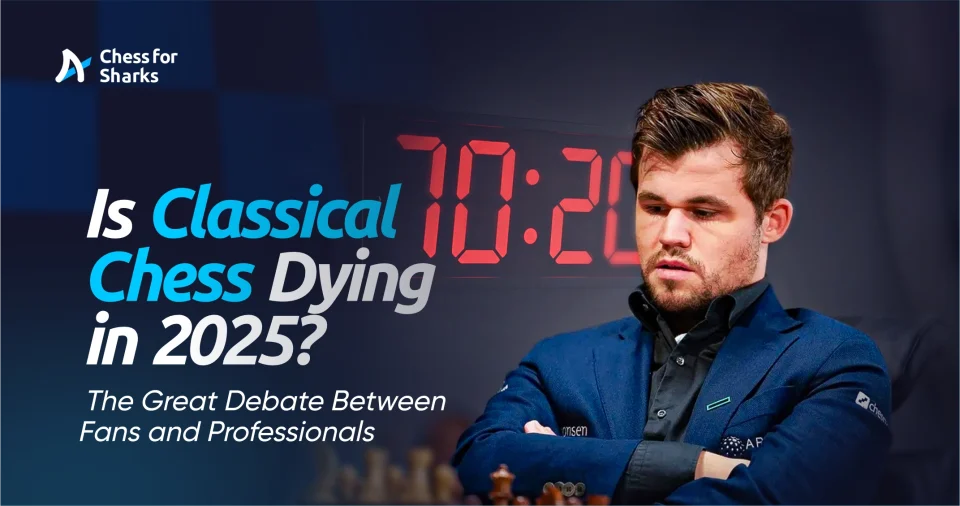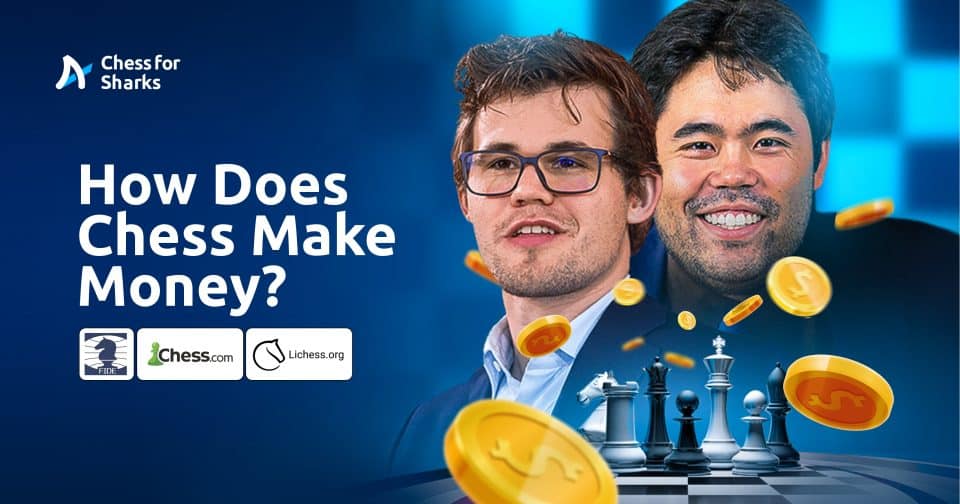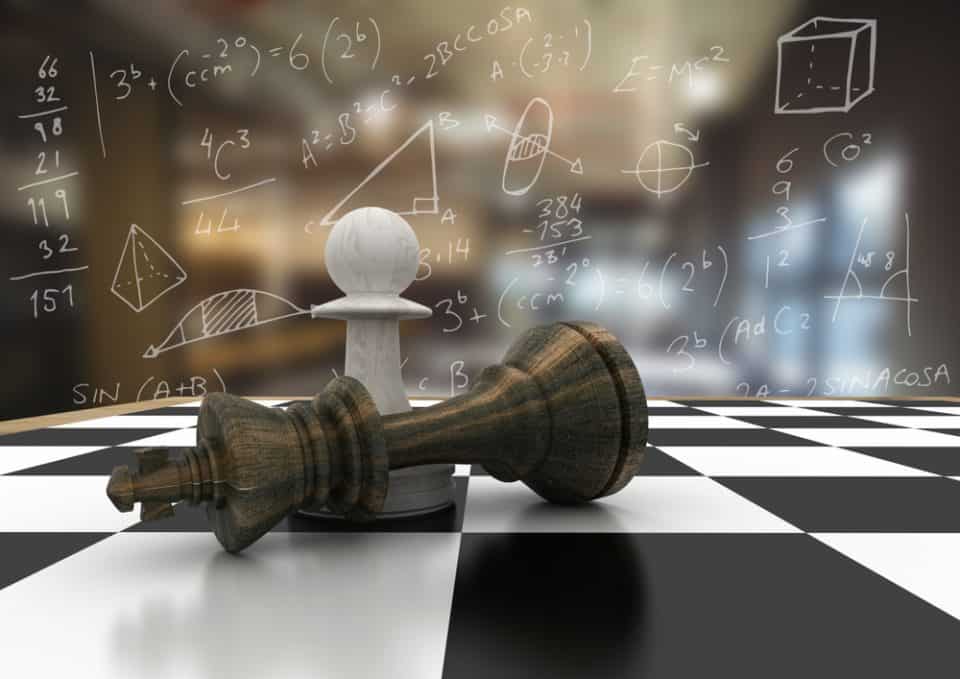Ever wondered what it’s like inside the mind of a chess grandmaster?
How many moves ahead are they thinking as they stare intensely at the board, plotting their strategy?
You’ve probably heard the myth that grandmasters think 20 or even 30 moves ahead.
The reality is quite different. Grandmasters don’t have superhuman cognitive abilities that allow them to see that far into the future.
Like the rest of us, their mental capacity is limited. The key to their success lies in something else – their ability to think strategically and calculate forced moves.
Here’s what we mean…
Grandmasters consider not just their own moves, but also their opponent’s responses and countermoves.
They envision a “tree” of possible sequences that could emerge from any given position. At each branch of the tree, there are more possibilities to ponder.
Keeping track of all these potential scenarios and calculating the outcomes requires tremendous mental computing power.
But they’re not computers which is why the human factor is important.
These grandmasters in their analysis mostly take forcing moves into account.
These forcing moves such as checks, captures, and attacks usually demand an immediate response. They understand how their opponent will likely reply and how the position will change as a result.
By envisioning each sequence of forced moves and countermoves, they can evaluate who stands to benefit most. This helps them determine the candidate moves with the greatest potential.
Something like this runs through their mind:
“If I play Bc6, he could play g4 attacking my knight after which I’m forced to move to away to d4. But the knight on d4 is defenseless, so he can try to play Be5 threatening the knight after which I play c3. He could then play Rb8 trying to undermine my pawn structure and weaken the knight defense…..”
Can you observe how their thought runs? By trying to think of forced moves and their opponent’s plan, they can calculate 4, 5 to even 10 moves.
For positions with limited range of moves for both sides, grandmasters are capable of seeing 15 or even 20 moves ahead. However, this is still quite difficult and only a few chess masters can actually pull this off.
There’re few reasons that explain why chess grandmasters can do this and not newbies.
While grandmasters do have a natural talent for visualizing the board, their ability to think several moves ahead comes down to two key factors: experience and pattern recognition.
Through years of practice and study, grandmasters have encountered countless positions and scenarios on the board.
They’ve seen how different moves play out and the various responses they provoke. This accumulated experience means they often intuitively know strong candidate moves to consider.
Grandmasters are also exceptional at spotting patterns on the board that point to the best continuations of play. The positions may be new, but the patterns – like exposed kings, weak pawns, open files, etc. – are familiar.
Spotting these patterns quickly allows them to narrow down the options and explore the most promising sequences of moves.
Through practice, study and intuition, chess grandmasters have developed a kind of sixth sense for what lies beneath the surface of the board.
While calculating many moves ahead is challenging, for these masters of the game, it comes as second nature.
Concluding Thoughts
So next time you’re struggling through your chess game, don’t beat yourself up over not being able to think 10 moves ahead.
Grandmasters have a lifetime of experience and practice that has trained their minds to intuitively sense the best moves.
For us casual and tournament players, trying to think too far ahead can be counterproductive and lead to analysis paralysis.
Just focus on the normal chess principles you know – controlling the centre, making your pieces active, and always anticipating your opponent’s threats.
If you build up your pattern recognition through regular play, your ability to think ahead will improve over time. But for now, keep your strategy simple and enjoy the thrill of the game.







join the conversation